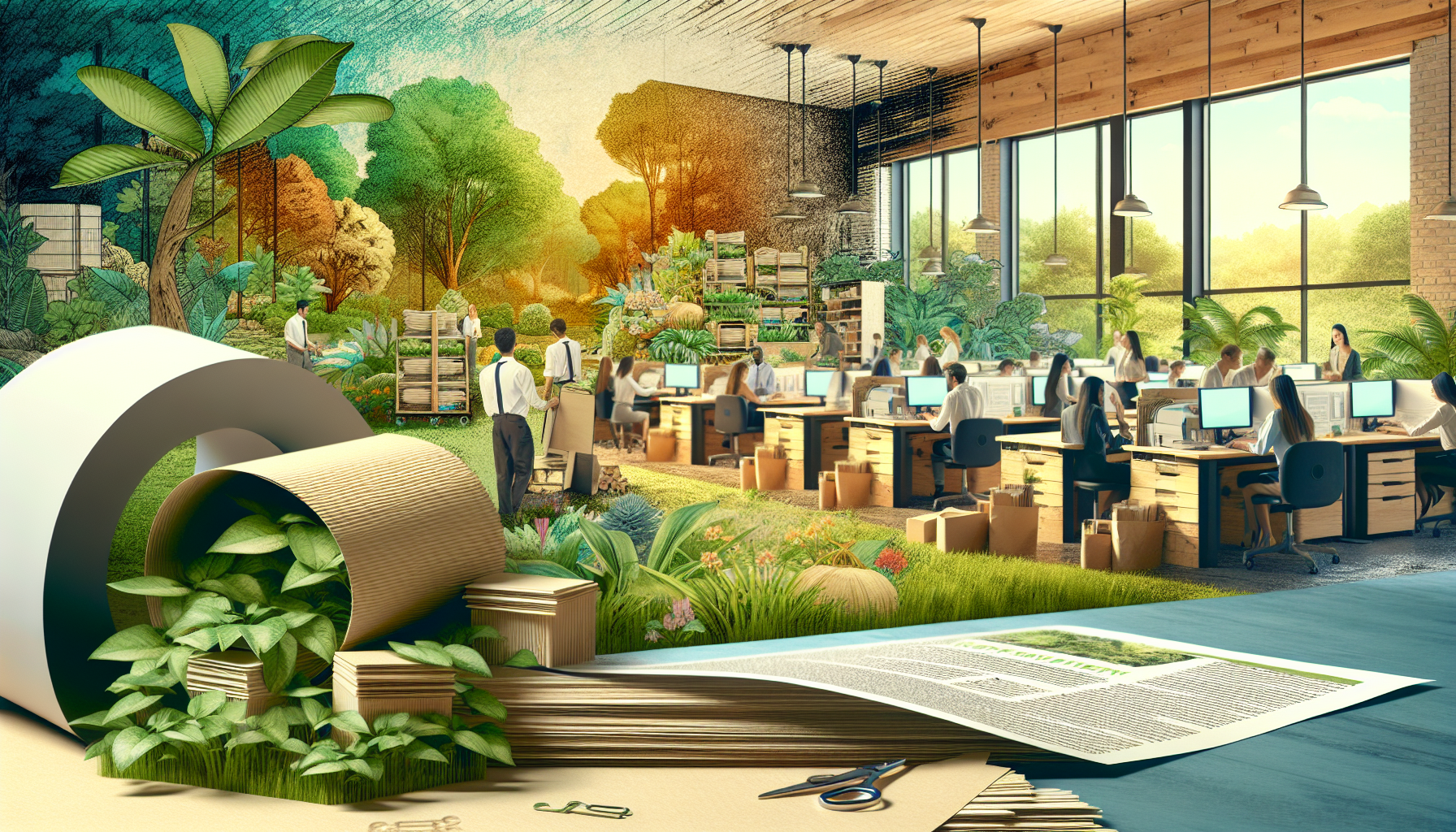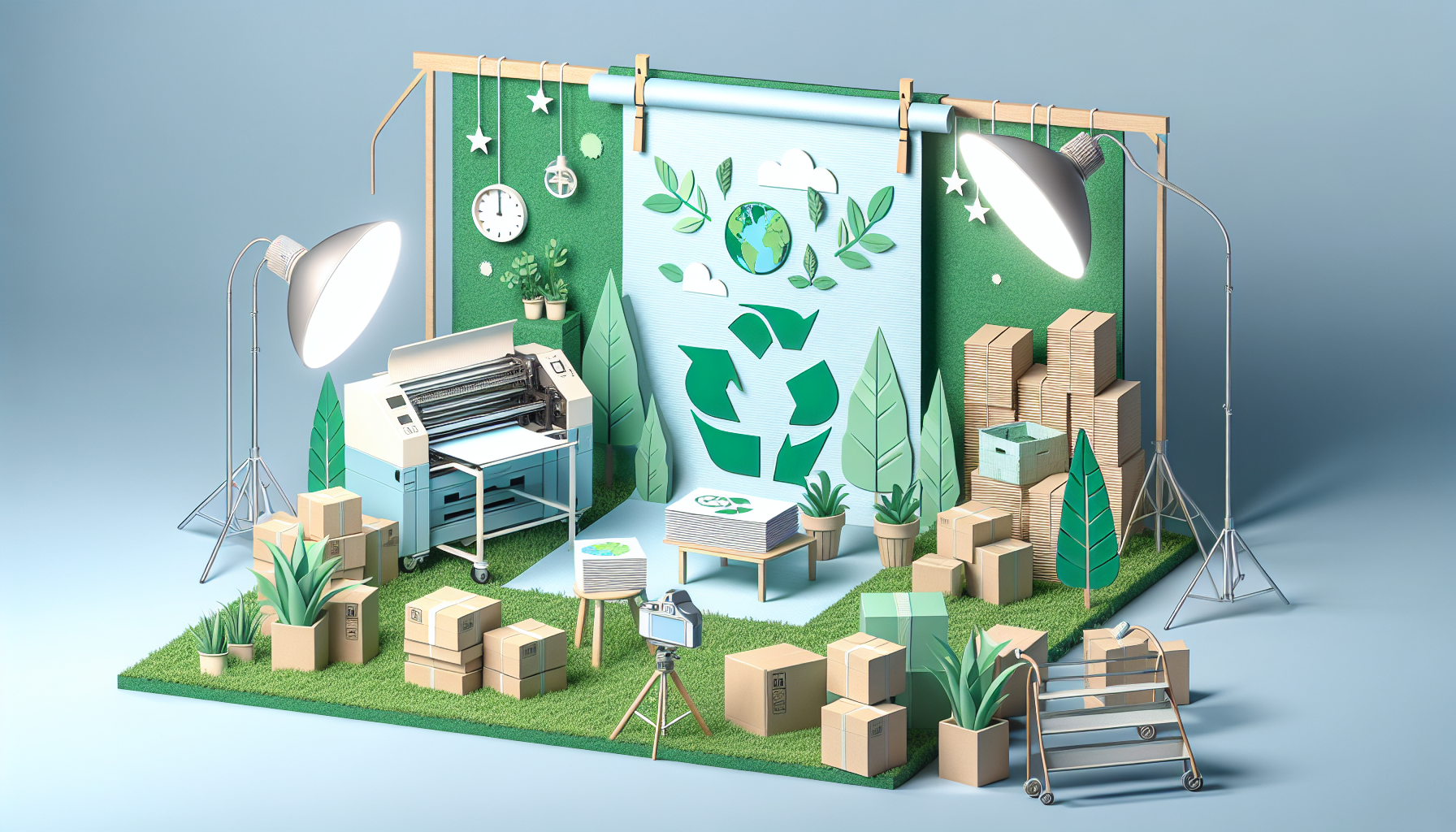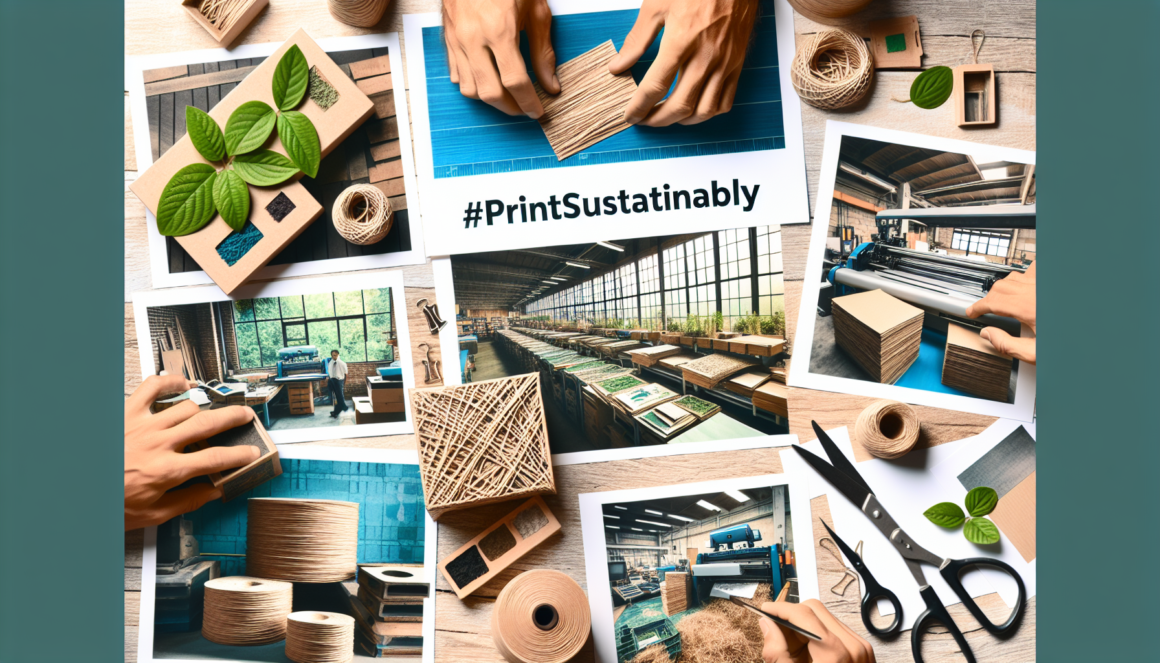Reduction of the environmental footprint thanks to recycled paper
Awareness of the ecological impacts linked to our daily activities is increasingly present in our minds. Adopting environmentally friendly practices, such as the use of recycled paper, is proving to be an effective way to minimize our environmental footprint. In a context where every gesture counts, the choice of paper that we use in our professional and personal sphere becomes crucial.
The circular economy applied to paper is a principle that companies like Lucart put forward to show the example of an industry capable of renewing itself by limiting the waste of resources. The advantages of this model are multiple: not only does it reduce the use of virgin resources such as trees, but it also helps to reduce the volume of waste. The figures show that for each ton of recycled paper, several trees can be saved, hence the importance of promoting this approach.
Furthermore, ecological questions raise debates such as that of paper VS digital. Studies such as the one mentioned by “Le Monde de l’Énergie” dismantle certain prejudices and make it possible to understand that energy consumption and the carbon footprint linked to digital technology must also be taken into consideration. This includes often invisible aspects like the digital footprint of an employee, which includes the energy used for data storage and transmission.
When we talk about the ecological impact of paper, we cannot ignore everyday products like toilet paper. Canadian studies reveal a significant ecological footprint caused by this product which, on a global scale, involves important industrial and consumer choices. This awareness paves the way for alternatives like those considered for other products, for example, the bold idea of replacing glass wine bottles with paper wine bottles, thus reducing the impact on the environment.
To return to the heart of the matter, paper recycling, while laudable in its intention, raises points for attention. The recycling process itself incorporates energy-consuming steps and can result in polluting emissions. Thus, the emphasis must be placed not only on recycling but also on reducing upstream consumption and improving recycling processes so that they are cleaner and less energy-intensive.
In a common effort to protect our planet, every action contributes to safeguarding our environment. Recycled paper appears to be a credible and necessary alternative. By favoring products from recycling and participating in the virtuous loop of the circular economy, we can all play an active role in reduction of the environmental footprint. It is by becoming aware of the global impact of our consumption choices, and through in-depth reflection on ecological alternatives that we can move towards a more sustainable future.
Savings and reduced costs by opting for printing on recycled

An Eco-responsible Solution to Reduce the Ecological Footprint
In an era where environmental values are gaining momentum, the use of recycled paper in printing operations proves to be an initiative that is not only eco-responsible but also beneficial in terms of reducingecological footprint.
By favoring materials from recycling, we actively participate in reducing waste sent to landfills and slowing down the exploitation of forests, an essential factor for the preservation of biodiversity. What’s more, the paper recycling process requires less energy and causes less water pollution compared to the production of virgin paper, confirming the impact positive on our environment.
The Financial Benefits of Adopting Printing on Recycled Paper
By adopting the use of recycled paper, companies also discover a significant financial advantage. In terms of cost, recycled paper options can often be more economical as the market matures and demand increases. Additionally, the use of this type of paper is perceived favorably by consumers, potentially increasing loyalty to a brand demonstrating environmental awareness.
Not insignificant, government incentives or tax credits granted to companies that choose eco-responsible solutions such as recycled paper add additional savings. This is without counting on the benefit of the brand image and was ofinnovation that the company plans, thus standing out in a competitive market.
Profitability and Sustainability: A Winning Duo with Recycled
- Reduced production costs – Reduce costs by using less expensive paper in purchasing and processing.
- Simplified equipment maintenance – Recycled materials tend to be less demanding on machines, extending the life of printers.
- Positive response from customers and stakeholders – Attraction and retention of customers sensitive to the environmental cause.
Optimization of Printing Flows for Increased Impact and Cost Control
By focusing on the optimization of printing flows and process efficiency, companies that choose recycled paper optimize not only their ecological footprint, but also their profitability. The establishment of an efficient fleet of printers and the effective management of paper provide a savings lever which adds to the reduced footprint on the environment.
Ultimately, recycled paper isn’t just an eco-friendly option; it’s a business strategy which reinforces the credibility and integrity of a brand or company. Arguments which, taken together, can only promote informed decision-making towards more sustainable and profitable practices.
Improvement of the brand image through an eco-responsible policy

In a world where corporate social responsibility is more scrutinized than ever, opting for recycled paper is not just a gesture for the environment, it is a powerful brand strategy. Such a choice underlines a strong commitment to sustainable development and the preservation of resources, while remaining aligned with modern aspirations and corporate values.
The era of the digital receipt: an ecological revolution in tandem with recycled paper
Embracing the digital receipt era demonstrates a concern for environmental impact while promoting customer loyalty. The move to digital, combined with the use of recycled paper for essential printed media, creates an advantageous duality. This means less waste and a significant reduction in your company’s carbon footprint, adding value to your brand image.
Social communication: a pillar of brand building
Your communication must reflect the ethical and environmental principles that you advocate. By adopting recycled paper for your communications, you demonstrate a commitment to sustainable practices, thus consolidating the trust and support of your customers and partners. This creates a responsible brand image that is aware of current ecological challenges.
Recycled industrial packaging: the intersection of economics and ecology
The use of recycled industrial packaging is a solution that demonstrates an innovative spirit while being economical. This approach affirms a company concerned with optimizing resources and reducing waste, further strengthening its eco-responsible image.
Customizable goodies: vectors of a committed brand
Goodies, when carefully chosen and eco-designed, can become ambassadors of your sustainable approach. Offering environmentally friendly promotional products, such as those made from recycled materials, aligns your brand with sustainability and propels your reputation beyond company boundaries.
Employer branding and CSR: a winning duo
Corporate Social Responsibility (CSR) is a boon for employer brand. By adopting recycled media for your internal documents, you embody the values of sustainability and motivate your employees to invest in a company that cares about the future of the planet.
Modern and ethical advertising tools: asserting your brand identity
Advertising tools evolve over time and with societal expectations. By favoring eco-designed media, such as recycled paper for your catalogs, flyers or business cards, you communicate about your company’s responsible innovation and strengthen your positioning in an increasingly aware market.
The choice of recycled paper is not simply a material one, it is the reflection of a global business strategy, in accordance with the major directions taken by the European Union, in particular through the Green Deal. Every aspect of your market presence, from your packaging to your advertising campaigns, must be imbued with this ecological identity that you claim.
LikeOrange, which has become a benchmark in terms of societal commitment, your company can embody change and positively influence your sector. Through concrete actions and thoughtful choices, such as adopting recycled paper for your printing needs, you will project a strong, dynamic brand image that is respectful of our planet.
Innovation and creativity in the use of recycled paper

Printed media: opt for an innovative design
In an era where innovation And creativity are essential, printed media are not left out. Choosing recycled paper for your communication media also means opting for a innovative design which distinguishes your brand and transmits your values of environmental commitment. Aesthetics and quality do not have to be compromised when you embrace the eco-friendly cause. The versatility of recycled paper allows for bold, eye-catching creations while preserving our natural resources.
When ecology stimulates creativity
The need to preserve the environment acts as a real driving force for creativity. From coffee cups made from recycled materials transformed into luxury objects, to the emergence of innovative materials in the Landes to replace plastic, ecology is pushing the limits of inventiveness. Companies that venture into these innovative approaches, like Veolia under the leadership of Antoine Frérot, prove thatinnovation eco-friendly is not only possible but can also be synonymous with market leadership.
The creative power of paper: discover the inspired creations
The Antalis competition highlights the creative power recycled paper. This annual competition reveals inspired creations, proving that the material can be transformed into an asset of choice for artists and designers. THE winners of the Antalis competition are the perfect example of the harmony between aesthetics and respect for the environment, producing works and books that are not only objects of art but also benchmarks in terms of sustainability.
How to reduce the environmental impact of your campaigns?
Reducing the environmental impact of its campaigns is becoming a central issue for any company aware of its ecological footprint. Indeed, adopting recycled paper in your communication campaigns is only one piece of the puzzle to minimize your impact. From developing strategy to choosing materials, each step requires careful consideration and a commitment to better solutions. green and durable.
In the Landes, an innovative solution to replace plastic
Combining ecology and technology, initiatives such as those undertaken in the Landes demonstrate that it is possible to replace polluting materials such as plastic with 100% natural alternatives. These solutions, centered on the use of cellulose, open the way to innovative applications in packaging and beyond, perfectly illustrating that the stationery sector can also contribute to a more sustainable future. responsible.
Antoine Frérot, Veolia: “the challenge is to innovate first”
The quote from Antoine Frérot, CEO of Veolia, raises an essential point: “the challenge is to innovate first”. In the field of recycled paper, this race for innovation is particularly relevant. It not only allows reduce environmental impact industrial activities but also to offer a significant competitive advantage in the market.
Luxury Coffee Cups and Recycling
The evolution of mentalities has allowed the rise of recycled products in the world of luxury. Coffee cups, once a waste product, are becoming luxury design products thanks to recycling innovation. This trend shows that recycled materials like paper can acquire new added value, strengthening their appeal to environmentally conscious and energy-loving consumers. high-end products.
The most beautiful reference, art and recycled books from the Nuit du livre 2018 list
Recycled paper is also at the heart of literature and art. The works recognized during Book Night 2018 are irrefutable proof that the use of recycled paper contributes to the creation of reference books, combining aesthetic richness and ethical consideration. These creations perfectly illustrate how recycled paper can fit into the demanding world of art and culture.
The choice of an eco-responsible approach, through the use of recycled paper, therefore asserts itself as a powerful vector ofinnovation and of creativity, allowing companies to stand out while adhering to sustainable values. By embracing this transition towards environmentally friendly solutions, not only are you contributing to the preservation of our planet, but you are also taking part in the emergence of a cleaner and more responsible future.
Sustainable resource management: the life cycle of recycled paper
In the current context of ecological crisis, the notions ofcircular economy and of ecological transition emerge like beacons in the mist, guiding businesses and consumers towards more sustainable practices.
Start on Solid Foundations: Eco-Design
The life cycle of recycled paper begins with a process ofeco-design. This process integrates water management principles and optimization of resources from product design. By reducing the need to use virgin resources, recycled paper establishes its first marker ofenvironmental efficiency.
Collection and Sorting: The First Steps of Recycling
Recovering used paper is crucial. Thanks to a rigorous selection, only materials meeting the criteria defined by the recycled paper eco-labels enter the transformation circuit. Elected officials and citizens can find in the elected officials’ toolbox information and means to effectively organize the collection of paper for recycling.
Transformation: A Second Life for Paper
Arriving at the processing stage, the used paper is cleaned, de-inked and then ground to obtain a paste ready to be molded into new sheets or products. Here, each step is managed from a perspective of pollution reduction and maintaining high quality of the finished product. This process allows reduce water and energy consumption compared to traditional paper production.
Use and Reuse: Maximizing the Value of Paper
Recycled paper finds its place in various applications, thus demonstrating its versatility and its ability to reduce waste. Its use within businesses, particularly for professional printing, actively contributes to a sustainable resource management, while offering a yield equivalent to, or even superior to, new paper.
Waste Reduction: Priority to Prevention
Waste prevention is a key principle of anti-waste law circular economy. The reuse of paper, its recyclability and its terminal management must be considered at each stage of its life cycle. Simple but effective actions, such as double-sided printing, can significantly reduce carbon footprint of each sheet of paper used.
End of Life: Extended Producer Responsibility
Even at the end of its life, recycled paper can still be used. There energy recovery or transformation into compost for non-recyclable qualities complete the panorama of possibilities. However, the extended producer responsibility (REP) encourages a return to square one, where the paper can be used again recycled, thus continuing its virtuous loop within the circular economy.
In short, the life cycle of recycled paper embodies an essential approach towards more sustainable society. Embracing the various aspects ofgreen economy, of which eloquent examples are provided by countries like Morocco, this approach not only allows us to preserve our natural resources but also acts as a lever for economic and social growth compatible with the environmental challenges of our time.


Leave a Reply